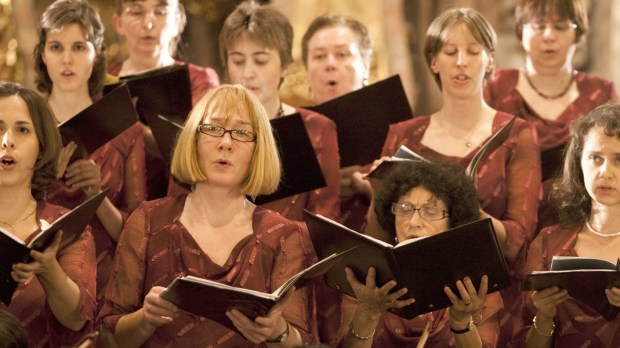Lenten Campaign 2025
This content is free of charge, as are all our articles.
Support us with a donation that is tax-deductible and enable us to continue to reach millions of readers.
Christmas carols have a classic quality that seems timeless, but many of them are more recent compositions than one might think. Popular carols like “Silent Night,” “Jingle Bells,” and “Joy to the World” only date to the 19th century, but before the inception of Christmas carols, there were Christmas hymns. These were liturgical pieces that were more solemn than the lively carols made for dancing.
The tradition of Christmas caroling was developed in the 13th century, influenced in part by St. Francis of Assisi. The earliest known Christmas hymns date back to the 4th century, with notable Church figures such as St. Ambrose and St. Hilary of Poitiers credited as authors. These works would lead monasteries to develop the Christmas “sequence,” and by the 13th century carols began to appear.
Christmas carols did not begin to sound like the songs of today until the 17th century, which saw the arrival of “O Come, All Ye Faithful,” and “Good Christian Men, Rejoice.” The popularity of this carol format took off and eventually developed into the traditional Christmas music that we enjoy today.
As stated, most recent Christmas carols as we know them today were written within the last 300 years. To be fair, music from three centuries ago may not sound all that “recent,” but when considered in the context of 2,000 years of Church history, a few centuries are like the blink of an eye. So let’s take a look at some of the ancient hymns that Christians enjoyed for over a thousand years before Christmas carols came to be.
Veni redemptor gentium – St. Ambrose of Milan
First up is a 4th-century chant by St. Ambrose of Milan. This is an evening hymn which was used during the period from Christmas to the eve of the Epiphany. The text is credited to St. Ambrose thanks to a mention by St. Augustine in his writings. The music is so old that it is impossible to say if this is how it sounded when it was first performed.
Jesus Refulsit Omnium
Another hymn from the 4th century, “Jesus Refulsit Omnium,” was written by St. Hilary of Poitiers. It is considered to be one of, if not the, oldest Christmas song ever written. The song follows the journey of the three Magi who traveled to visit the infant Jesus. It is a motet, one of the earliest song forms developed by the Church. It is a purely choral piece that was composed before the use of instruments in the liturgy.
Corde Natus Ex Parentis – Prudentius
With a text written by the ancient Roman poet Prudentius, this is one of the oldest Christmas hymns. Although the music was published in the 16th century, the text dates back to ancient Rome and was drawn from John 3:16. Records of this plainchant date back to 13th century manuscripts.
The Friendly Beasts – Unknown
Coming out of 12th-century France, “The Friendly Beasts” is one of the oldest Christmas carols. The text was originally put to the tune of “Orientis Partibus,” used during the Feast of the Ass. This was a primarily French holiday that honored the donkey that aided the Holy Family in their flight from Egypt.
Resonet in Laudibus – Unknown
This is a madrigal that has been dated to the 14th century, but it is believed to be older. The piece translates to “Let the voice of praise resound.” It was considered one of the most jubilant hymns for the Christmas season.



